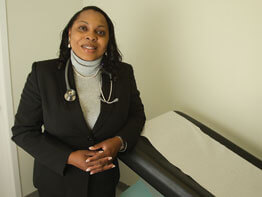Some 50-plus patients take better care of their cars than themselves, said Dr. Marc I. Leavey.
“They’re quick to bring their cars in for periodic maintenance, and people commonly pay more attention to their cars than necessary checkups of their body,” said Dr. Leavey, an internist at St. Joseph Medical Center in Towson.
The reason?
“The most common thing I get is, ‘I feel fine. I don’t want to fix anything before it’s broken,’ ” Dr. Leavey said.
Waiting for symptoms to appear before seeing a doctor is risky, though.
High blood pressure with no symptoms, for example, could lead to a heart attack or stroke, he said.
“I have seen serious illnesses being overlooked because they weren’t causing any symptoms, but we would find them on examination,” Dr. Leavey said.
Dr. Chienyenwa Nwachinemere, a primary care physician at Good Samaritan Hospital, said too many patients remain unaware of risk factors for diseases.
“For a large number of people, I think the problem is education,” she said.
As patients get older, and especially for those over 50, preventive care – and exams to spot disease so it can be treated early – become especially crucial, Dr. Nwachinemere said.
People over 50 also should be vigilant about checking cholesterol levels and getting screened for diabetes, she said.
Men and women should get colonoscopies starting at age 50, and men 40 and over should have prostrate exams and rectal exams.
Women should conduct self-exams to check for lumps that could be a sign of breast cancer and get annual mammograms starting at age 40 (earlier for patients with a family history of breast cancer), Dr. Leavey said. After menopause, women also should have gynecological exams done yearly and continue checking bone density, a measure of possible osteoporosis.
“Many at age 50 feel they’re past their child-bearing life and no longer need to do this,” Dr. Leavey said. “But they need to continue.”
Patients can improve their health simply by eliminating bad habits and living healthier lifestyles.
Quitting smoking, a contributor to heart disease and stroke, should be a priority for older patients, as should exercising regularly and eating healthier.
Dr. Leavey has seen the benefits of early intervention in saving lives or significantly improving them.
“A month doesn’t go by without somebody coming into the office who has a life-threatening illness,” he said, “and we can intervene.”


